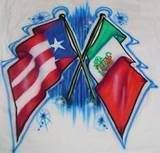
I just finished reading Bell Hooks' book Where We Stand: Class Matters and I simply adored it. I thought it was going to be another one of those non-fiction political science books full of dry statistics and too-broad analyisis, but instead I found the opposite.
It was a very personal narrative; almost like a memoir. Hooks takes the first couple of chapters to talk about her own class/race/gender background, and only after that does she start to talk about wider issues such as consumerism, post-feminism, the persistence of racism, and the invisibility of class in our current culture. Even then, she weaves her own life experiences into the topics which made the book's messages more effective and engaging.
Reading this book was bibliotherapy for me as it did me well to read about a perspective not so often found in any kind of media. Hooks talks about class in a way that I felt as if I were talking to a friend. It felt almost as if she was listening to my stories as well. I don't believe I've read (heard, seen) anywhere else, a person talk about being the first to go to a college and not having money to pay it, not having enough to eat or pay rent; that being in college was the most alienating experience, yet feeling more at home there ('in the world of ideas') than anywhere else.
That passing the grade of academia moves you into a different spot, but not really separates you from daily poverty or racism. I have a master's degree from a prestigious university and I am as poor as ever. Yet people believe that with my education, I am now of a different class. I don't feel like it. Am I in some sort of class limbo?
Hooks talks about the fact that poor/working class people that transition to middle-class and beyond are never really separated from poverty or racism because they usually have family and friends that still face those issues. I feel this describes me too, as a citizen with extensive education, not only do I not have anything to fall back on, but I am reminded daily of the injustices that undocumented immigrants, and the working poor face because they are my family and friends. Although it is a hard existence, it keeps me connected to the strruggle for justice and human rights.
I loved this book because it spoke so many of the things that I never knew how to express and I was surprised to hear, lived in others hearts and minds, not just my own. The only things that was lacking was her that she espoused a binary Black-White thoght. On one hand, it is frustrating to always listen to the story of America as either a Black or White experience, when Latinos have been part of the culture since this country's inception (and even before). But on the other hand, she is Black woman who came of age in the Jim Crow South and is just re-telling her life and thoughts the way that she understands them.
And in reality, it just means that us Latinos need to speak up and become as strong a voice for our communities as she is for hers.
I wonder if I should be a writer...


2 comments:
I read "Ain’t I a Woman?: Black Women and Feminism" Bell Hook's first book (she wrote while she was still an undergraduate student!). I realize that it is one of the seminal books in postmodern feminist literature but it left me with a bad taste in my mouth. Hooks seemed to be putting much of the blame on black men for the oppression of black women instead of the capitalist-patriarchal system. While I realize that some people play their roles in the class structure more dutifully than others (i.e. Men of color that beat their wives etc... ) that doesn't take away from the fact that non-white men are also part of the social economic superstructure that oppresses us all. If we are ever to overcome oppression in all forms we have to unite and fight the system not the individuals caught up in the cycle of violence and oppression.
Regardless, I still want to read "where we stand" maybe she was just venting in her first book and developed her theories further in her later books.
Wow, she wrote a book as an undergradute? That is inspiring and intimidating!
This was my first book of hers and is sounds very different from the one you read. Since this one was published in 2000, it probably does point to her philosophy cahnging throughout the years.
Plus I can understand the need to get it all out at the beginning of one's coming to consciousness...
Post a Comment